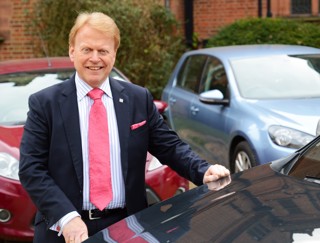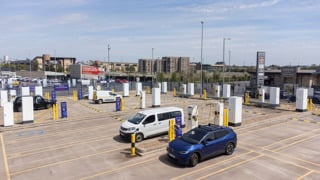Fleet trade and training body, the Association of Fleet Professionals (AFP), is calling on the Government to publish benefit-in-kind (BIK) company car tax tables for the next decade, if it brings forward a ban on the sale of new diesel and petrol cars.
Currently, fleets have been told the tax position of company cars up to 2024/25, but the AFP argues that a longer-term view would help fleets develop electric vehicle (EV) adoption strategies. This, it says, would be essential if the Government decides to bring forward its internal combustion engine (ICE) ban.
As it stands, the sale of new ICE vans and cars will be banned from 2040, but following a consultation launched in April, the Government is expected to bring that forward to 2035 or 2030 and include hybrids for the first time.
Paul Hollick, AFP chair, explained: “At the AFP, our opinion is that the proposed 2030 electrification target is achievable from a fleet point of view but that we would need a high level of co-operation from the Government to get there.
“Currently, we have tax tables up to 2024-25 and that allows us to effectively plan one replacement cycle ahead, which is useful, but we would also like to see tables through to 2029-30 created as soon as possible to look two cycles into the future.
“From a practical standpoint, this will mean that we can produce comprehensive EV adoption strategies that take us right through to the moment when petrol and diesel cars will no longer be available, tackling financial and operation concerns.”
The AFP is also calling on ministers to clarify its intentions around other areas of EV policy, such as the subsidies available.
“At present, the grants that are used to discount prices of new EVs are very much part of the calculations that make them affordable to businesses,” said Hollick.
“It is probably inevitable that they will be reduced over time but if they are suddenly withdrawn or substantially reduced at some point in the future, it does make the maths difficult.”
Similarly, the AFP says it would like to see more detailed plans created around the growth of the charging infrastructure.
“If only EVs are on sale by 2030, we’re going to need to see a massive increase in availability, and new and effective solutions created – for example, for people who don’t have a drive on which to charge their vehicle,” added Hollick.
“Our message to the Government is that the 2030 objective is realistic but only with a stable taxation environment and the right physical infrastructure. Changing policy substantially at every Budget is just going to make things difficult.”
The AFP says it is keen to engage with the Government in conversations about the future of company vehicle taxation and business transport in general.
“One of the reasons for the formation of the AFP was to allow the fleet industry to speak with one voice and we are very keen to make our views heard at the highest level and to bring our expertise to bear in useful discussions,” continued Hollick.
“This might mean talking about the future of company car taxation but also, for example, we would also like to see tax breaks introduced for personal mobility budgets, which is a policy that can already be seen on the continent.”
The AFP's call for a more longer-term view on company car tax comes as Government is also being urged to only allow businesses to operate pure electric cars and vans from 2030.
Energy supplier SSE, which has already committed to switch its fleet to electric by 2030, as part of international non-profit The Climate Group’s global EV100 initiative, wants ministers to mandate the switch away from petrol and diesel fleet vehicles to electric vehicles (EVs) in a bid to drive down transport carbon emissions.
A decision on bringing forward the ICE ban is due in the next few weeks.





















Login to comment
Comments
No comments have been made yet.